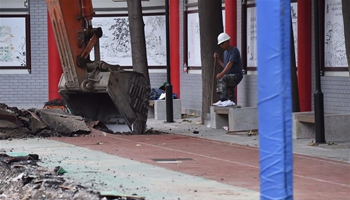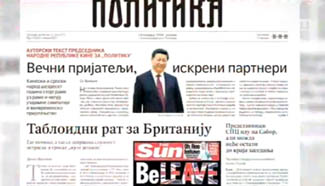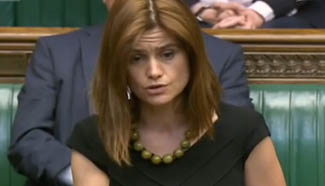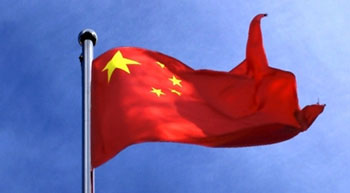by Edna Alcantara
MEXICO CITY, June 17 (Xinhua) -- Mexico's education reform was a pillar of the policies of President Enrique Pena Nieto when he was elected in 2012. Since then, however, it has run into stiff opposition from teachers, unions and research groups who say it will not raise the quality of education in the country.
"We need a reform to face real problems, such as poor teaching skills and unequal access to education, especially in secondary school, said Marco Antonio Fernandez, professor of public policy at the Technological Institute of Monterrey, in an interview with Xinhua.
A protestor against the reform who preferred to remain anonymous said, "We are fighting to open dialogue to attend to our demands. We reject the privatization of education and the violation of our labor rights."
Fernandez added that authorities should view the reform as neccessary to truly "respect how teachers are trained and appointed."
On paper, the reform is aiming to do away with nepotistic practices, which see teaching positions bought and sold, staff having to pay for promotions, children inheriting the positions of their parents, and evaluation exams being altered.
"Such changes are crucial to overcome resistance to change within the sector. The teachers' union (CNTE) is arguing that uncertainty about the contents of the reform have left teachers thinking that this will only lead to superficial changes," the expert said.
For example, Fernandez stated that despite the intention of the reform, the government still has not published the list of teaching positions available for the next academic year.
"This is a problem as people believe that certain state governors will try to assign the positions. This undermines the credibility of the reform," he said.
Mario Rueda, a researcher on education from the National Autonomous University of Mexico (UNAM), said that dialogue is urgently needed between the government and dissident teachers to avoid a breakdown.
"Dialogue would avoid this situation from becoming politicized and to see both sides collaborate, with teachers actually weighing in on what measures should be taken," Rueda told Xinhua.
One of the major sticking points for the CNTE is that thousands of teachers will now be evaluated as part of the reform, with potential dismissals for those failing to pass.
From May 15, the government formalized a new model for teachers, with Pena Nieto saying he wanted teachers to be thoroughly evaluated as part of a "dignified and experienced" national education system.
The government sees these compulsory evaluations as key, but the CNTE says it will only discriminate against teachers in poorer areas with poorer resources.
This would be a major topic for any dialogue between the two sides. Even if this is resolved, Rueda wants Mexico to look at education in a completely different light.
The UNAM researcher highlighted the examples of Cuba and Argentina, where economic crises actually led to "more attention being paid to education systems. We should learn from that."
"Without a doubt, it is necessary to improve the quality of education in Mexico, by making it more objective, equal and useful," he concluded.










